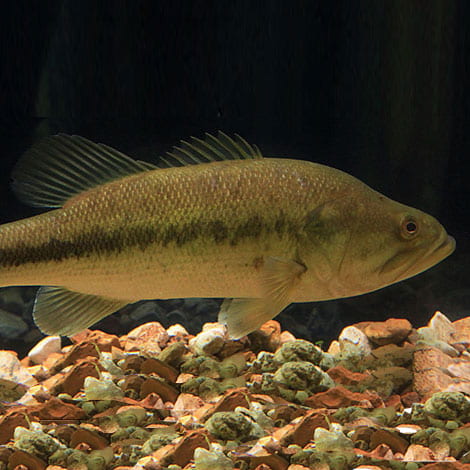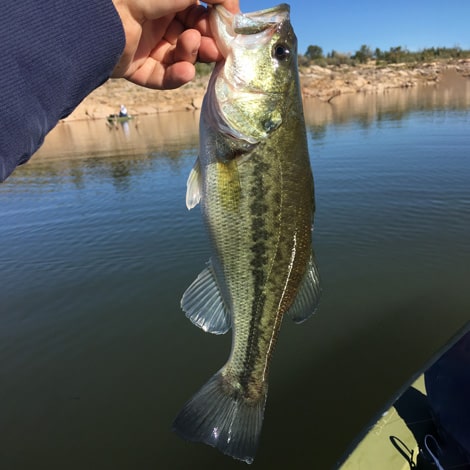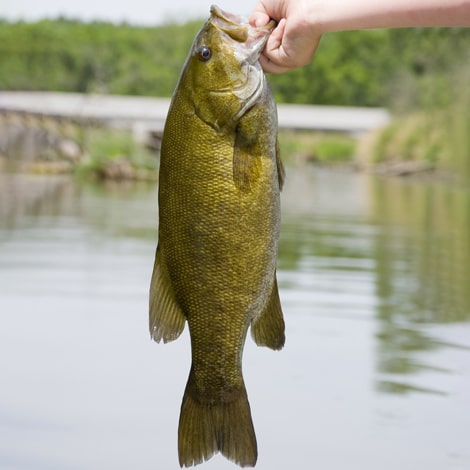A: Bass – both largemouth and smallmouth – make excellent predator fish. These strong, scrappy guys keep your bluegill population in check. They chase frogs, eat crustaceans and snails, and even catch unsuspecting birds and rodents like small muskrats. They're a definite asset in your pond or lake.
These two fish cousins, however, have their differences. Read on to learn which is better suited to your pond or lake.
Distinct Differences
Though they're both species of fish in the sunfish family, largemouth and
smallmouth bass have different physical characteristics. The largemouth bass, Micropterus salmoides, sports a big grin that extends way back beyond its eye, while the smallmouth bass, Micropterus dolomieu, has a smaller smile that reaches only to the middle of its eye. They also differ in their color and color patterns; the olive green largemouth has dark blotches of scales that run horizontally down its flank, and the brassy brown smallmouth has dark scales that run vertically.
Happy Habitats
These freshwater fishes both thrive in lakes, ponds and rivers, but each species has its preference. Largemouth bass favor crystal clear lakes with 2 to 6 feet of water, and sandy shallows and abundant rooted aquatic plants or
habitat for spawning. They flourish in warmer water – even enjoying 80 to 90 degree temperatures in the summertime.
Smallmouth bass, however, are primarily river dwellers that like to hang out around pea-size to 1-inch-diameter gravel for spawning. They'll
tolerate lakes and ponds, but they like the steady current and higher rate of dissolved oxygen it provides. They also like water temperatures a bit cooler; anything warmer than 90 degrees F is lethal to smallmouth bass.
Food for Thought
These fish also have different tastes in food. Largemouth bass aren't too picky. They'll gobble through a variety of foodstuffs, from
Game Fish Grower Food to smaller fish like shad, perch, bluegill and sunfish. Smallmouth bass, however, stick to the bottom of the lake or river and nosh on crustaceans, insects and smaller fish.
Potential Pondmates?
Because both these guys are fun and challenging to fish, it would be fantastic to have both species in your pond or lake, wouldn't it?
Large- and smallmouth bass can live together, but it takes the help of an attentive game fish manager to make that happen. The general consensus from most experts is that the largemouths will typically replace smallmouths in smaller pond settings unless subadult or adult smallies are introduced annually. Even if you provide an ideal spawning environment for them, the largemouths will still edge them out.
Bottom line: You're better off with the largemouths. They're easier to keep, and they adapt more readily to a pond- or lake-type environment.
Last Updated: February 1, 2023



